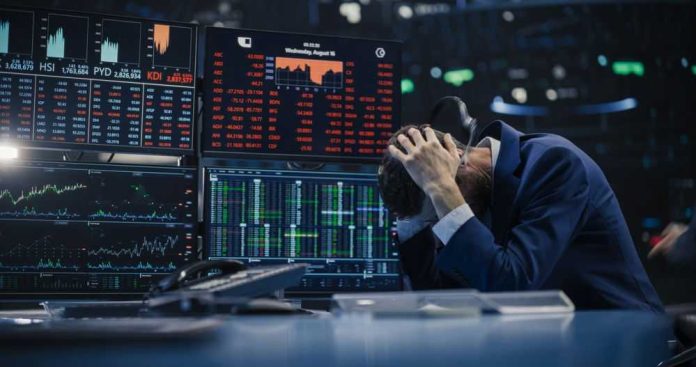
Beyond Meat’s dramatic fall from IPO darling to penny stock reveals how financial engineering can backfire spectacularly when a company prioritizes survival over shareholder value.
Story Highlights
- Beyond Meat stock collapsed to around $1 after a debt swap deal that diluted shareholders by over 400%
- The company exchanged $1.11 billion in debt for $196.2 million in new notes plus up to 326 million new shares
- Shares plummeted 45% in a single day when the deal was finalized, pushing the market cap below $80 million
- The move increased annual interest expenses by $14 million while buying time to avoid bankruptcy
From Wall Street Darling to Penny Stock Disaster
Beyond Meat’s journey from a $3.9 billion IPO success story in 2019 to a sub-$80 million penny stock represents one of the most dramatic corporate collapses in recent memory. The plant-based meat pioneer went public at $25 per share, riding high on environmental consciousness and alternative protein hype. Six years later, existing shareholders have watched their investments evaporate as management chose financial survival over protecting shareholder value.
The debt restructuring deal that triggered this collapse exchanges $1.11 billion in zero-percent convertible notes for just $196.2 million in new 7% convertible notes due in 2030. The remaining debt burden transforms into up to 326 million new shares of common stock, effectively quintupling the share count overnight. This represents one of the most severe cases of shareholder dilution ever witnessed in a major public company.
The Arithmetic of Financial Destruction
CEO Ethan Brown defended the debt swap as a “meaningful next step” toward reducing leverage, but the numbers tell a different story. While the company reduced its debt load, it simultaneously increased annual interest expenses by $14 million, worsening the cash burn that got Beyond Meat into trouble initially. The 7% interest rate on the new notes represents a significant increase from the zero-percent notes they replaced.
Analysts at TD Cowen and Mizuho Securities expressed deep skepticism about the deal’s long-term viability. Robert Moskow noted that despite the debt reduction, the company remains “financially and operationally challenged,” while John Baumgartner described Beyond Meat as caught in a “formidable bind” between needing growth and requiring cost reduction. Neither analyst sees clear path forward given persistent category headwinds expected to continue into 2026.
Sector Headwinds Expose Fundamental Flaws
Beyond Meat’s collapse coincides with broader challenges facing the alternative protein sector. Consumer enthusiasm for plant-based meat has waned significantly since the pandemic peak, with shoppers returning to traditional animal proteins due to concerns about price, taste, and processing. The company’s failed international expansion, including its exit from China, highlights management’s inability to adapt to shifting market dynamics.
The appointment of AlixPartners’ John Boken as Interim Chief Transformation Officer signals management’s recognition that operational changes are desperately needed. However, the restructuring advisor faces the impossible task of cutting costs while somehow reigniting growth in a declining category. Brown’s decision to stop providing financial guidance ahead of the Q3 earnings report further undermines investor confidence in the company’s strategic direction.
Lessons in Corporate Governance and Accountability
Beyond Meat’s implosion serves as a cautionary tale about the dangers of prioritizing financial engineering over operational excellence. Management’s willingness to devastate existing shareholders through massive dilution rather than pursue more painful but equitable solutions raises serious questions about corporate governance and fiduciary responsibility. The board’s approval of this deal effectively transferred wealth from long-term shareholders to creditors who agreed to the swap.
The broader implications extend beyond Beyond Meat itself. The company’s collapse could further dampen investor enthusiasm for the entire alternative protein sector, making it harder for competitors to raise capital for innovation and expansion. When a former market leader resorts to such desperate measures, it signals fundamental problems with the business model that regulatory intervention and subsidies cannot solve.
Sources:
Beyond Meat’s IPO Success Story Withers into Penny Stock Territory
Why Are Beyond Meat Shares Falling Today



